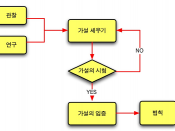Although events in history occurred over a long span of time and development, history first became an academic subject a little more than 100 years ago (McNeill 12). Since then, a plethora of controversies appeared regarding how historians, scholars, and intellectuals should examine and analyze history. Among the initial methods of studying history was the scientific research method, or scientific source criticism, which fundamentally extracts valid, legitimate facts from a diverse range of historical sources. Throughout time, however, the facts derived from this method of historical study gradually altered, leading to a new method of historical study: using facts and combining them with opinions and goals to constitute personal interpretations. As Oscar Handlin zealously asserts, historians and scholars should provide a strict examination of history based on a chronological study of known and verifiable facts as opposed to using verifiable facts as the basis for their own interpretation, influenced by their own group, experiences, beliefs, and personal motives.
Through implementing a strict examination of history, historians can successfully detect and eradicate bias in their writings, allow the government as well as individuals to gain an insight into the past in order to secure and progress the future, and grasp the magnitude of truth.
First, because strict examination of history based on a chronology and conclusive evidence can aid in discerning bias from genuine fact, historians should utilize the scientific method of research. Although Oscar Handlin admits that historians are never "totally free of bias" (7), he does claim that removing facts from interpretations eliminates bias, opinionated statements, and fiction from history, which is supposedly the chief goal and use of history (Handlin 5). On the contrary, when scholars employ William McNeill's method of investigating history through interpretation, biased and one-sided analyses emerge, and, therefore, scholars may elasticize actual truth to...


